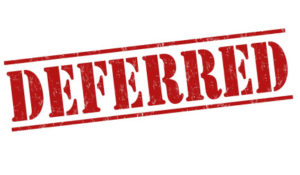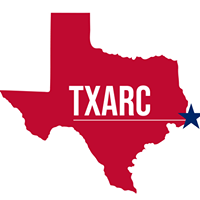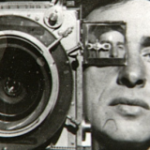 We did it! YOU did it!. Less than 24 hours after Bastard Nation issued our action alert to stop Louisiana SB 392, the bill was deferred for the session–and we hope will be pulled.
We did it! YOU did it!. Less than 24 hours after Bastard Nation issued our action alert to stop Louisiana SB 392, the bill was deferred for the session–and we hope will be pulled.
Bastards & Friends pulled together at unprecedented speed. With emails, tweets, and phone calls we let the Senate Judiciary Committee know that SB 392 was unacceptable and an insult to Louisiana adoptees and adoptees throughout the US. It is not what adoptees want or need.
Monday, Bastard National Elise Lewis flew all the way from Minnesota to NOLA via Atlanta (where she was held up by a storm), then drove to Baton Rouge to testify. By the time she got there the bill had been deferred due to the bad reaction. Elsie, however, was able to secure a meeting with the bill’s sponsor Troy Carter. He is willing and interested in helping restore the rights of adopted persons in Louisiana, and we will be keeping in touch with him.
Two other Bastard Nationals, driving home from the AAC in Albuquerque also volunteered to drive straight through to testify, but fortunately, they didn’t have to. We would also like to thank our old friend Kenny Tucker for his assistance.
Please contact Sen Carter and thank him for listening to our voices and deferring SB 392 to next session. Encourage him to work on a clean bill for all adoptees.
cartert@legis.la.gov
Phone: (504)302-3682
@TROYSEE
This is what happens when Bastards keep focused on the prize of equality for all, not just some Thank you all!
Bastard Nation: The Adoptee Rights Organization
Phone 614-641-0294 /614-372-5535
www.bastards.org @bastardsunite
Submitted Testimony on SB392—original birth certificate access for adoptees
DO NOT PASS:
Judiciary Committee A
April 24, 2018
Submitted by Marley E. Greiner, Executive Chair
Bastard Nation: the Adoptee Rights Organization is the largest adoptee civil rights organization in the United States. We support only full unrestricted and unconditional access for all adopted persons to their original birth certificates (OBC) and other government-held files pertaining to their adoptions.
We are submitting testimony today on SB 392 and ask that you vote DO NOT PASS.
This bill does nothing to further the rights of Louisana adoptees. In fact, it places them in a worse position than they already are legally, with Draconian regulations on original birth certificate (OBC) access and identifying information that even the tightest closed record states do not require
OBC access is the keystone of adoption reform in the US today. SB 392 is complicated, difficult to understand, and perplexing. It is not what adoptees want. SB 392:
-
Opposes and rejects current national best practice adoption standards and policy, including policy recently adopted by the Academy of Adoption and Assisted Reproduction Attorneys (see below).
-
Forces adopted persons and birth family members to join a poorly publicized and little used state-run “reunion registry” to even begin the process of OBC release; possibly with a registry fee.
-
Stigmatizes adoptees by suggesting that those who seek their own birth certificates—a document that the not adopted can access without restriction, question, or stigma from the state— are dangerous and need psychological counseling (even to participate in the ill-conceived registry.)
-
Creates a special right for third parties (birthparents and siblings), who have no legal standing – to intervene and stop release—a “right that no other person holds over another. On top of it, birthparents have relinquished (or the state relinquished them for them) their parental right decades earlier severing all rights and responsibilities.
-
Represents big government at its worse. It bars citizens from accessing the public/state held record of their own birth. If the state can withhold that most intimate of document, what other records can it withhold?
Some things to consider:
Privacy/Confidentiality v anonymity in Records Access
Unrestricted OBC access is not a “privacy” or “birthparent confidentiality” issue. In fact, “privacy.” “confidentiality,” and” anonymity” are not synonymous either legally or linguistically.
There is no evidence in any state that records were sealed to “protect” the reputation or “privacy” of biological parents who relinquished children for adoption. On the contrary, records were sealed to protect the reputations of “bastard children” and to protect adoptive families from birthparent interference.
Family Courts can and do grant the opening of OBCs and other adoption records requests without notice to or input from the birthparent(s). Moreover, courts have ruled that adoption anonymity does not exist. (Doe v Sundquist, et. al., 943 F. Supp. 886, 893-94 (M.D. Tenn. 1996).and Does v. State of Oregon, 164 Or. App. 543, 993 P.2d 833, 834 (1999)). Laws change constantly, and the state, lawyers, social workers, and others were never in a position to promise anonymity in adoption. In fact, in the almost 50 years of the adoptee rights movement, not one document has been submitted anywhere that promises or guarantees sealed records and an anonymity “right” to birthparents.
Identifying information about surrendering parents often appears in court documents given to adoptive parents who can at any point give that information to the adopted person. (In some states adoptive parents, at the time of adoption finalization, can petition the court to keep the record open.) The names of surrendering parents are published in legal ads. Courts can open “sealed records” for “good cause.” Critically, the OBC is sealed at the time of adoption finalization, not surrender. If a child is not adopted, the record is never sealed. If a child is adopted, but the adoption is overturned or disrupted, the OBC is unsealed.
Legislation needs to catch up with technological reality. We are well into the 21st century. The information superhighway grows wider and longer each day, and adoptees and their birth and adoptive families are riding it, utilizing the Internet, social media, inexpensive and accessible DNA testing services, and a large network of volunteer “search angels” to locate personal information for adoptees. Thousands of successful adoption searches happen each year—hundreds in Louisiana alone—making adoption secrecy virtually impossible. The minuscule number of birthparents or so-called “professional experts” who believe that restricted OBC access or no access equals adoption “anonymity” are greatly mistaken. The fact is, nearly all successful searches are done without the OBC and other court documents.
The Academy of Adoption and Assisted Reproduction Attorneys Join Adoptee Rights Advocates in Support of Records Access
For decades the highly influential Academy of Adoption and Assisted Reproduction Attorneys has been one of the strongest opponents of OBC access. Earlier this year, the organization reversed its policy. In a statement published on January 13, 2018, the AAARA announced that it supports and promotes “the inherent rights of adult adopted persons to their personal family information: and to have access to (1) original birth certificates, (2) agency records which relate to them and their biological family; and (2) court records of their adoption. http://www.adoptionattorneys.org/aaaa/academy-info/resolutions
Conclusion
There is no state interest in keeping original birth certificates sealed from adult adoptees to which they pertain. Nor does the state have a right or duty to mediate and oversee the personal relationships of adults. Those who claim a statutory right to parental anonymity through sealed records or through restricted access to them promote statutory privilege and state favoritism. Louisiana’s current statutes do not reflect current adoption best practice and culture. As we’ve noted above, the reality of technology and social media has been embraced eagerly by adoptees and their families in search of information.
Records access is the keystone of adoption reform in the United States today. Please vote DO NOT PASS on SB 392. Settle for nothing less but a clean inclusive bill in the future that will restore the right of all Louisiana adoptees to the original birth certificates. Let Louisiana join Alabama, Alaska, Colorado, Hawaii, Kansas, Maine, New Hampshire, Oregon, and Rhode Island as states that recognize the full humanity and citizenship of it’s adoptees. Be adoptee proud, It’s the right thing to do.
Thank you!
******
@BastardsUnite




 New York Adoptee Rights Coalition
New York Adoptee Rights Coalition











